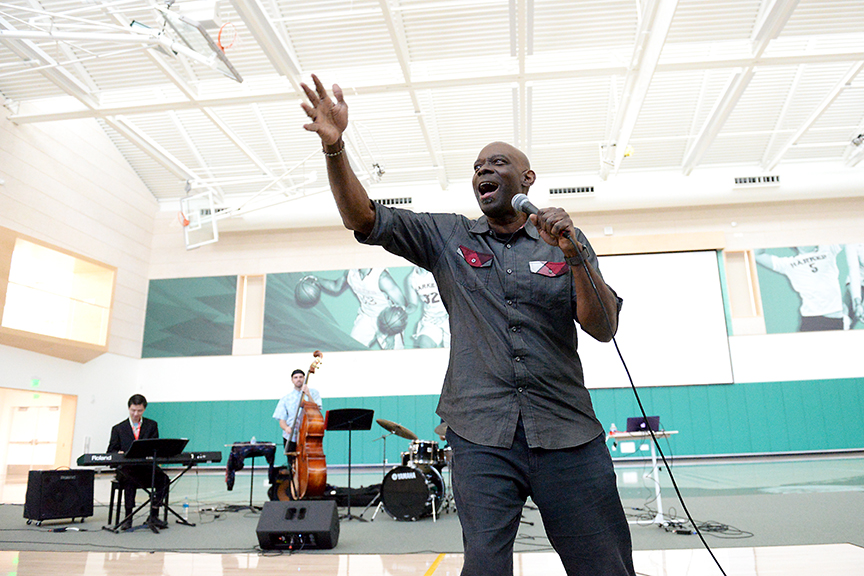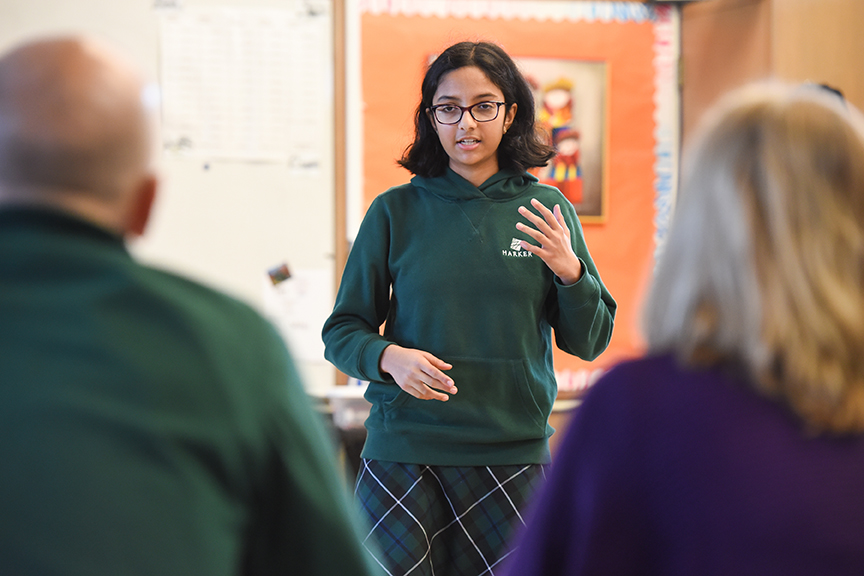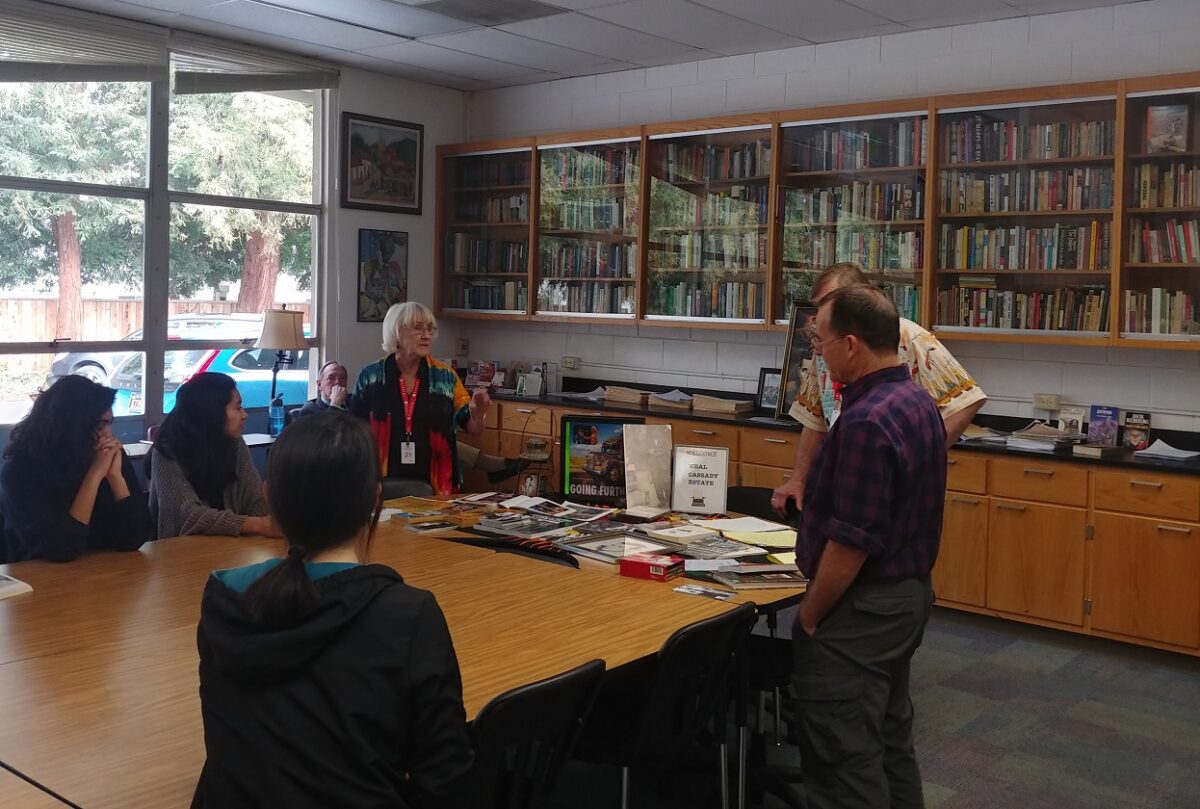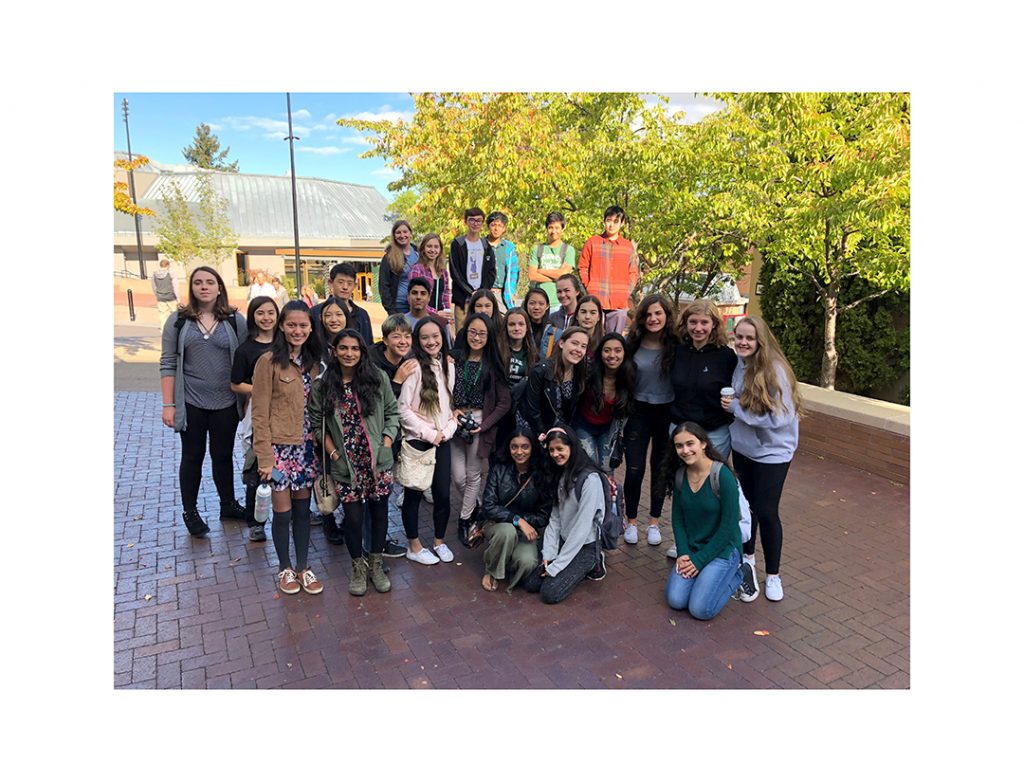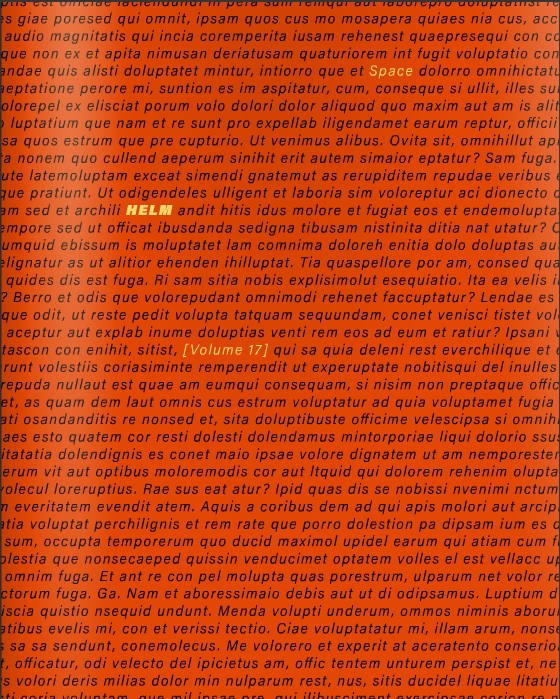The upper school received a visit today from the Langston Hughes Project, a fusion of music, literature and history led by Ron McCurdy, a professor of music at the University of Southern California’s Thornton School of Music.
English
Students participate in “Shark Tank” activity to benefit charities
Last week, students in Rebecca Williams’ grade 7 English classes participated in an activity modeled after the popular TV show “Shark Tank.” Students created…
Guest offers literature students insight into Beat Generation authors
Students in Charles Shuttleworth’s class on Jack Kerouac and the Beat Generation received a special visit from Jami Cassady Ratto, daughter of influential beat writer Neal Cassady.
Upper school students deepen understanding of the Bard at Oregon Shakespeare Festival
Almost 30 upper school students made the trip to Ashland, Ore., to visit the Oregon Shakespeare Festival.
Middle school writers awarded certificates in Promising Young Writers Program
Arusha Patil and Alexander Kumar, both grade 9, were recently honored in the 2017 Promising Young Writers Program, organized by the National Council of…
Upper School’s HELM Named Finalist in CSPA Crown Awards
HELM, the upper school’s literary magazine, was recently named a finalist in the Columbia Scholastic Press Association’s 2017 Crown Awards competition. These awards are…
